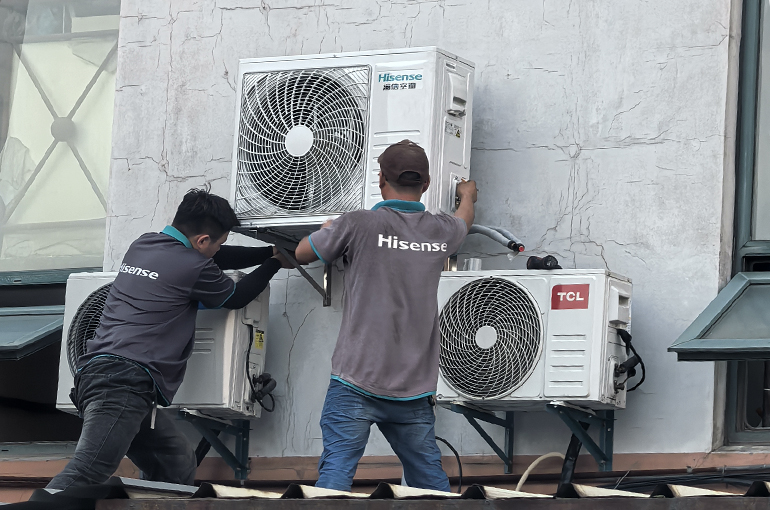 Air Con Sales Surge in Northeastern China After Rare Heat Wave
Air Con Sales Surge in Northeastern China After Rare Heat Wave(Yicai) July 11 -- The high temperatures in Northeastern China, a high-latitude region with a typically fresher year-round climate, have boosted local air conditioner sales, with schools emerging as top buyers.
In-store air conditioner sales in northernmost Heilongjiang province surged 818 percent from June 23 to 29 and 438 percent from June 30 to July 6 from a year earlier, according to data from home appliance market research agency All View Cloud. The figures in neighboring Jilin province soared 129 percent and 788 percent, respectively.
Some northeastern regions of China have recorded temperatures exceeding 35 degrees Celsius several times this summer, triggering a surge in demand for air conditioners by local schools, a worker from Changhong Electronic Holding Group told Yicai.
Schools in Northeastern China lack air conditioner units because summer temperatures in the region typically stay below 30°C, the person noted. However, local governments included air conditioner installation in the scope of school renovation projects for this year due to the heat wave, the person added.
Harbin Engineering University in Heilongjiang recently announced it plans to invest CNY18.5 million (USD2.6 million) to buy more than 7,000 air conditioner units for student dormitories.
In addition, several schools in southeastern Fujian, western Sichuan, and central Hubei provinces and Chongqing have also intensified their air conditioner purchases this year, according to data from the China Government Procurement website.
Thanks to national energy-saving policies and the Ministry of Education's campus environment improvement plan, the price ceiling for air conditioners bought by schools has been lowered this summer, the Changhong employee said, adding that some provinces have also introduced a special 30 percent subsidy for air conditioners that meet energy efficiency standards.
The education sector is one of the significant growth areas for the air conditioning industry, with considerable market potential in the coming years, a representative from Chinese home appliance giant Hisense Group said to Yicai. Procurement requirements will gradually shift towards energy-saving, low-carbon, smart technologies, and resource-efficient materials, the person added.
Editors: Dou Shicong, Martin Kadiev